Rohingya Muslims demand safe return to home after 6 years of exodus
Rohingya Muslim refugees demand their safe return to their homeland, Myanmar, on the sixth anniversary of the violence that forced them to flee to Bangladesh.
In 2017, hundreds of thousands of Rohingya Muslims fled Myanmar for neighboring Bangladesh and India to escape the brutal attacks by military forces in Myanmar’s western Rakhine state.
The Rohingya case is now the subject of separate proceedings before the International Criminal Court and for "acts of genocide" before the International Court of Justice.
Bangladesh is home to around a million members of the Muslim community, who, for decades, have been denied citizenship, rights, access to services, and freedom of movement.
Several protests were held at the camps near the Myanmar border on Friday.
Around 10,000 refugees were present at the largest one, according to the Armed Police Battalion, which is tasked with maintaining security in the camps.
"We demand citizenship back from Myanmar. It's nothing new, we were and are the citizens of Myanmar," Kamal Hussain, a Rohingya community leader, told AFP.
"They are slowly trying to wipe out our name from the history of Myanmar."
Read more:
The refugee population relies almost entirely on food aid as they are not allowed to leave the camps or formally work.
Since March this year, the World Food Program assistance to a million refugees was cut by a third to just $8 per month due to a funding shortfall.
"As humanitarian conditions in the world's largest refugee settlement worsen... the challenges surrounding this protracted crisis continue to increase," the UN refugee agency said in a statement this week.
Observers warned about the food ration cuts that can have “serious and far-reaching consequences,” for nearly 1 million Rohingya camp residents.
Save the Children charity also warned on Thursday that the health and well-being of more than half a million children are at risk due to recent drastic cuts in food assistance,
“Even before the first food ration cuts, 45 percent of Rohingya families were not eating a sufficient diet and malnutrition was widespread in the camps, with 40 percent of children experiencing stunted growth,” the charity said.
In a statement earlier this week, Human Rights Watch said that the UN Security Council’s “inaction and government aid cutbacks are leaving Rohingya in even more desperate straits."
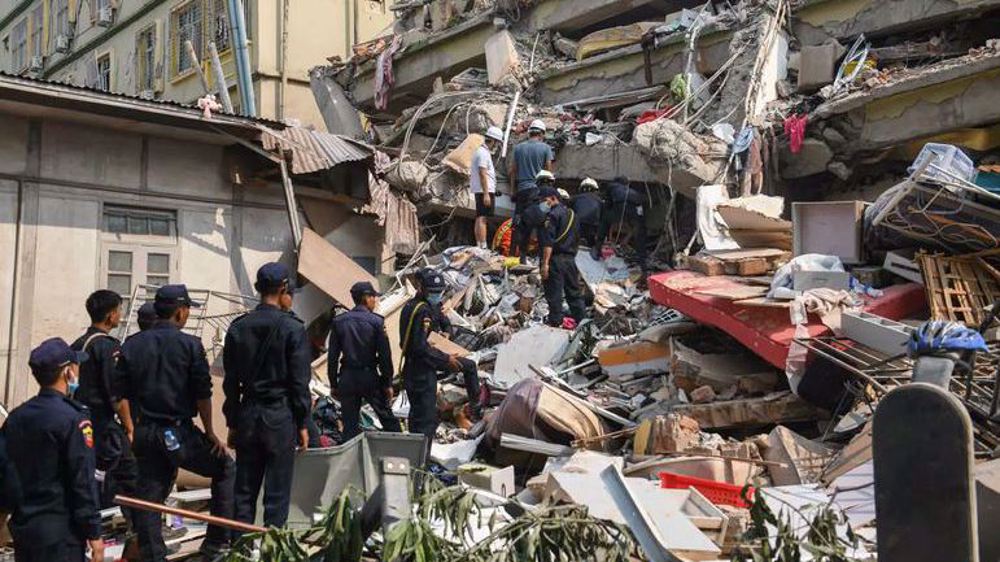
Iran voices readiness to help quake-stricken Myanmar, Thailand
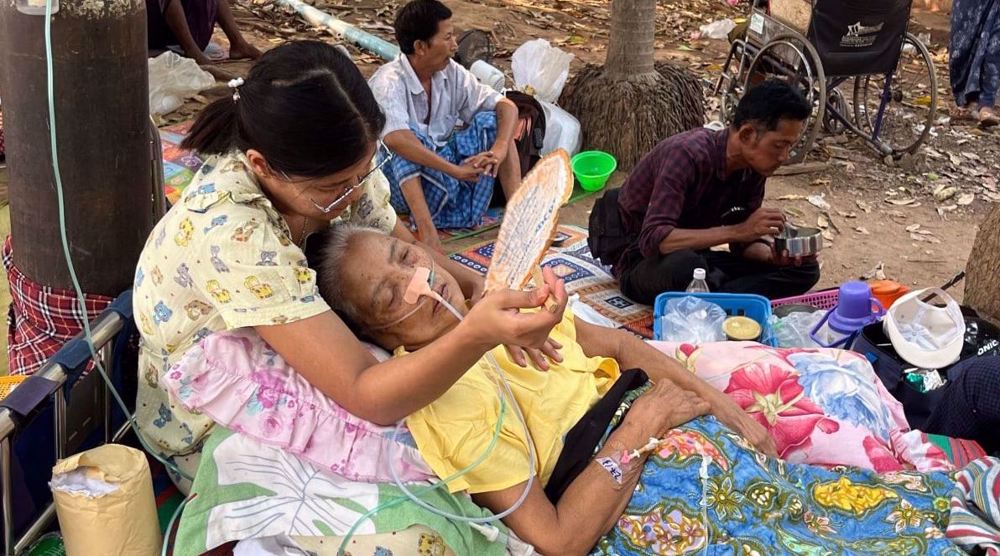
Myanmar, Thailand declare state of emergency after quake

Brazil's Lula urges Japan-Mercosur partnership to counter US protectionism
Red Cross 'outraged' over Israeli killing of eight medics in Gaza
‘A salute to steadfastness’: Hamas says Palestinians mark Eid amid Israeli aggression
Leader: Corrupt Israeli regime ‘only proxy force’ in region, must be uprooted
Eid al-Fitr celebrated in Iran, other countries as holy month of Ramadan comes to a close
VIDEO | Land Day protest in New York for Palestine
VIDEO | Press TV's news headlines
VIDEO | Austrian petition demands expulsion of Israeli envoy
American warplanes bomb Yemeni capital 13 times


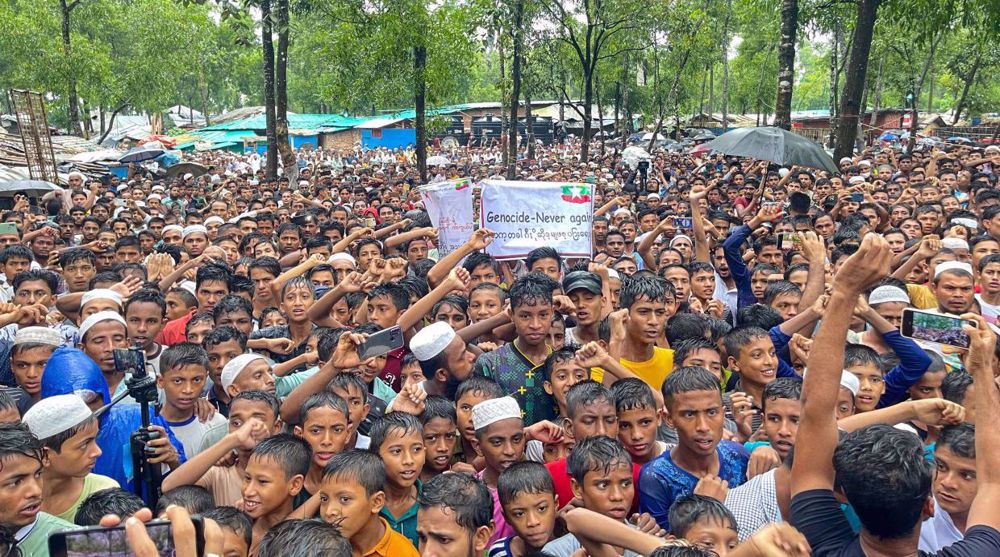



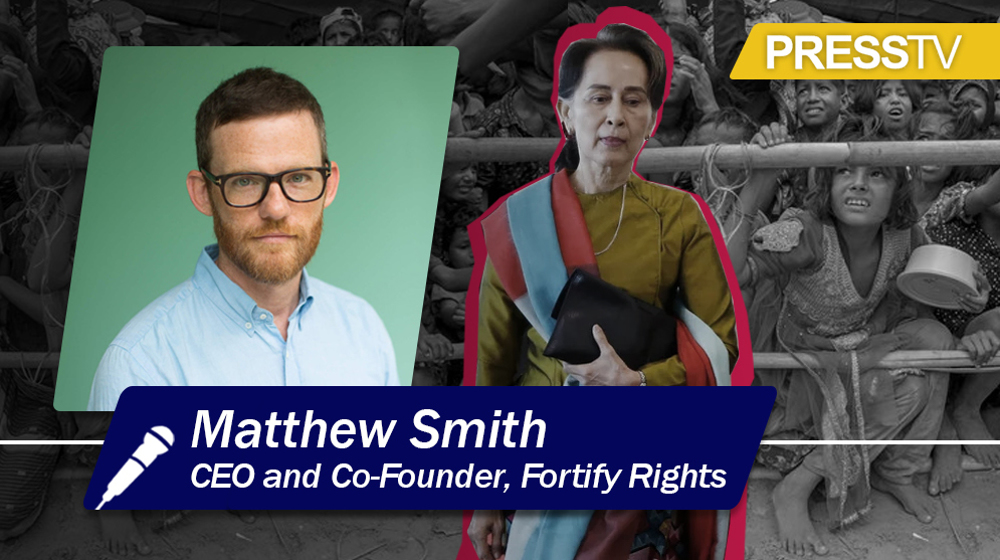
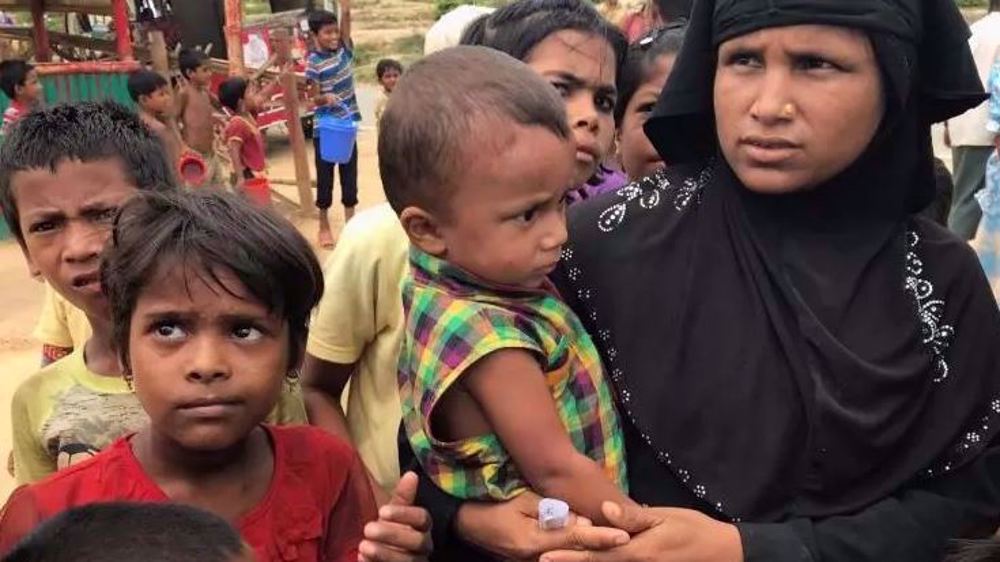

 This makes it easy to access the Press TV website
This makes it easy to access the Press TV website